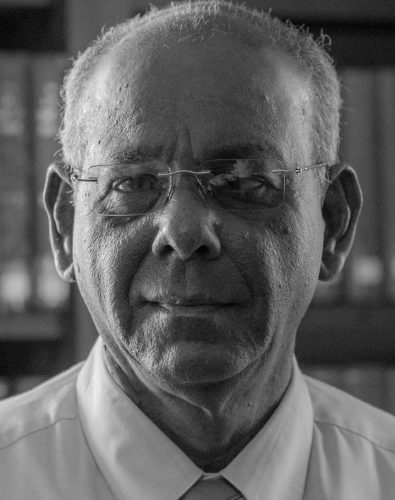Senior Counsel Ralph Ramkarran has accused Chief Election Officer (CEO) Keith Lowenfield of distorting the impact of the ruling of the Caribbean Court of Justice (CCJ) on the national recount as part of an effort to avoid complying with his legal obligations.
In his column in today’s Sunday Stabroek, under the title “Lowenfield’s weird mumbo jumbo,” Ramkarran suggests that Lowenfield has engaged in “willful defiance and gross insubordination” in failing to submit a final election report as directed by the Guyana Elections Commission (GECOM) Chair Claudette Singh.
Following the CCJ’s ruling, Lowenfield was asked to submit the report on the results of the election by 2pm on Friday using the votes certified by the national recount process. It was the second time he was asked to submit a report in wake of the results certified in the recount, the credibility of which he has questioned. However, he did not meet his deadline and instead submitted queries to Singh for guidance on preparing the report.
Against this background and seeking to counter expected “frenzied propaganda” over Lowenfield’s request, Ramkarran, who was the presidential candidate for A New and United Guyana (ANUG), sought to debunk the issues raised by the CEO.
Lowenfield, in his letter to Singh on Friday, suggested that since the Court endorsed the view that GECOM cannot determine credibility, the Recount Order could not be executed in its entirety and, as a consequence, a final credible count could not be attained as conceived by the Commission and expressed in the Order cannot.
Ramkarran, however, said the CCJ did not endorse the view that GECOM cannot determine credibility, that Order 60 cannot be executed in its entirety and that a final count cannot be attained. “This is an egregious distortion of what the CCJ said,” he wrote.
He noted that the CCJ held that after valid and invalid votes are determined during the procedures set out in Representation of the People Act (ROPA), any further alleged irregularities must be addressed by an election petition after the results are declared. “This has been twisted by the CEO to allege that a credible count (credible according to his and not the CCJ’s ruling) cannot be attained by the CCJ’s ruling,” he added.
Lowenfield also noted that Section 96 of the ROPA, which the Chair invoked for the preparation of his report, provides that the CEO is to compile his report from those submitted by returning officers, whereas the statements of recount, from which the Chair instructed him to compile his report, were not prepared by returning officers but by GECOM’s Secretariat staff. He also made reference to the CCJ’s statement that the Recount Order was in tension with the Constitution and could not create a new election regime. As a result, Lowenfield asked which results of the elections could be lawfully declared.
Ramkarran pointed out that the recount process was being undertaken under special circumstances, where the role of the Secretariat staff of GECOM was substituted for the returning officers. He said other procedures also needed to be modified to accommodate the new centralised system for the recount, which is normally done in the electoral districts and presided over by the returning officers.
“The Order of Recount made the modifications under Section 22(1) of the Election Laws (Amendment) Act which gave GECOM full powers to make the changes by order. The Order of Recount provided that the Statements of Recount prepared by the Secretariat can be used by GECOM to declare the final results. It is impossible for the CEO not to know this almost word for word. Why then this weird request?” he questioned.
He further said that the statement by the CCJ that the Recount Order cannot create a new election regime was made in rejecting the claim by Court of Appeal judge Brassington Reynolds that the Recount Order did just that. He said the CCJ was referring to the Constitution and not to ROPA and in fact upheld the Recount Order.
Lastly, Lowenfield queried the basis of Singh’s instruction to him as her letter to him cited Section 18 of the Election Laws (Amendment) Act and Article 177(2)(b) of the Constitution. He argued that since the historic practice is that the elections report is premised on the ascertainment of results by the Chief Election Officer, guidance was being sought on the legal basis for the report requested.
“If proof were needed that the CEO was grasping for straws to place obstacles in the way of sending in a report, this unintelligible request for clarification demonstrates it. The CEO had wrongly declared his independence as a constitutional officer. Section 18 provides that he is subject to the directions of the Commission. The reference to Section 18 is merely to remind him that he is not independent and must comply with the Chair’s request,” Ramkarran wrote. “The Chair is not required to make any reference to laws in her request. The CEO is presumed to know his duties, responsibilities and what he has to do and under what laws, even if the Chair’s letter is incorrect,” he added.





